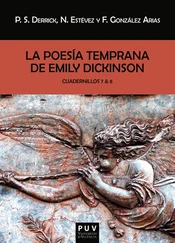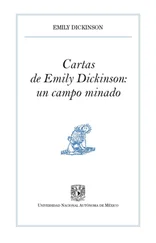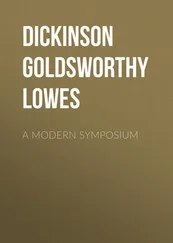Goldsworthy Dickinson - Appearances - Being Notes of Travel
Здесь есть возможность читать онлайн «Goldsworthy Dickinson - Appearances - Being Notes of Travel» — ознакомительный отрывок электронной книги совершенно бесплатно, а после прочтения отрывка купить полную версию. В некоторых случаях можно слушать аудио, скачать через торрент в формате fb2 и присутствует краткое содержание. Жанр: foreign_antique, foreign_prose, на английском языке. Описание произведения, (предисловие) а так же отзывы посетителей доступны на портале библиотеки ЛибКат.
- Название:Appearances: Being Notes of Travel
- Автор:
- Жанр:
- Год:неизвестен
- ISBN:нет данных
- Рейтинг книги:5 / 5. Голосов: 1
-
Избранное:Добавить в избранное
- Отзывы:
-
Ваша оценка:
- 100
- 1
- 2
- 3
- 4
- 5
Appearances: Being Notes of Travel: краткое содержание, описание и аннотация
Предлагаем к чтению аннотацию, описание, краткое содержание или предисловие (зависит от того, что написал сам автор книги «Appearances: Being Notes of Travel»). Если вы не нашли необходимую информацию о книге — напишите в комментариях, мы постараемся отыскать её.
Appearances: Being Notes of Travel — читать онлайн ознакомительный отрывок
Ниже представлен текст книги, разбитый по страницам. Система сохранения места последней прочитанной страницы, позволяет с удобством читать онлайн бесплатно книгу «Appearances: Being Notes of Travel», без необходимости каждый раз заново искать на чём Вы остановились. Поставьте закладку, и сможете в любой момент перейти на страницу, на которой закончили чтение.
Интервал:
Закладка:
First there was a prayer for forgiveness. "Lord, forgive us our sins. You must forgive, for you are called the merciful. And it's so easy for you! And, if you don't, what becomes of your reputation?" Next, a call to the ferry. "Come and cross over with me. Krishna is the boat and Rhada the sail. No storms can wreck us. Come, cross over with me." Then a prayer for deliverance from the "well" of the world where we are imprisoned by those dread foes the five senses of the mind. Then a rhapsody on God, invisible, incomprehensible. "He speaks, but He is not seen. He lives in the room with me, but I cannot find Him. He brings to market His moods, but the marketer never appears. Some call Him fire, some ether. But I ask His name in vain. I suppose I am such a fool that they will not tell it me." Then a strange ironical address to Krishna. "Really, sir, your conduct is very odd! You flirt with the Gopis! You put Rhada in a sulk, and then ask to be forgiven! You say you are a god, and yet you pray to God! Really, sir, what are we to think?" Lastly, a mystic song, how Krishna has plunged into the ocean of Rhada; how he is there drifting, helpless and lost. Can we not save him? But no! It is because his love is not perfect and pure. And that is why he must be incarnated again and again in the avatars.
Are these people idolaters, these dignified old men, these serious youths, these earnest, grave musicians? Look at their temple, and you say "Yes." Listen to their hymns, and you say "No." Reformers want to educate them, and, perhaps, they are right. But if education is to mean the substitution of the gramophone and music-hall songs for this traditional art, these native hymns? I went to bed pondering, and was awakened at six by another chorus telling us it was time to get up. We did so, and visited the school, set up by my friend as an experiment; a mud floor, mud-lined walls, all scrupulously clean; and squatting round the four sides children of all ages, all reciting their lessons at once, and all the lessons different. They were learning to read and write their native language, and that, at least, seemed harmless enough. But parents complained that it unfitted them for the fields. "Our fathers did not do it" – that, said my impatient young host, is their reply to every attempt at reform. In his library were all the works of Nietzsche, Tolstoy, Wells, and Shaw, as well as all the technical journals of scientific agriculture. He lectured them on the chemical constituents of milk and the crossing of sugar-canes. They embraced his feet, sang their hymns, and did as their fathers had done. He has a hard task before him, but one far better worth attempting than the legal and political activities in which most young Zemindars indulge. And, as he said, here you see the fields and hear the birds, and here you can bathe in the Ganges. We did; and then breakfasted; and then set out in palanquins for the nearest railway station. The bearers sang a rhythmic chant as they bore us smoothly along through mustard and pulses, yellow and orange and mauve. The sun blazed hot; the bronzed figures streamed with sweat; the cheerful voices never failed or flagged. I dozed and drowsed, while East and West in my mind wove a web whose pattern I cannot trace. But a pattern there is. And some day historians will be able to find it.
VIII
SRI RAMAKRISHNA
As we dropped down the Hooghly they pointed to a temple on the shore as lately the home of Sri Ramakrishna. He was only a name to me, and I did not pay much attention, though I had his "Gospel" 2 2 Gospel of Sri Ramakrishna. Second Edition. Part 1. Madras: Published by the Ramakrishna Mission. 1912.
actually under my arm. I was preoccupied with the sunset, burning behind a veil of smoke; and presently, as we landed, with the great floating haystacks smouldering at the wharf in the red afterglow. As we waited for the tram, someone said, "Would you like to see Kali?" and we stepped aside to the little shrine. Within it was the hideous idol, black and many-armed, decked with tinsel and fed with the blood of goats; and there swept over me a wave of the repulsion I had felt from the first for the Hindu religion, its symbols, its cult, its architecture, even its philosophy. Seated in the tram, it was with an effort that I opened the "Gospel" of Sri Ramakrishna. But at once my attention was arrested. This was an account by a disciple of the life and sayings of his master. And presently I read the following:
" Disciple. Then, sir, one may hold that God is 'with form.' But surely He is not the earthen image that is worshipped!
" Master. But, my dear sir, why should you call it an earthen image? Surely the Image Divine is made of the Spirit!
"The disciple cannot follow this. He goes on: But is it not one's duty, sir, to make it clear to those who worship images that God is not the same as the clay form they worship, and that in worshipping they should keep God Himself in view and not the clay images?
" Master. You talk of 'images made of clay.' Well, there often comes a necessity of worshipping even such images as these. God Himself has provided these various forms of worship. The Lord has done all this – to suit different men in different stages of knowledge.
"The mother so arranges the food for her children that every one gets what agrees with him. Suppose she has five children. Having a fish to cook, she makes different dishes out of it. She can give each one of the children what suits him exactly. One gets rich polow with the fish, while she gives only a little soup to another who is of weak digestion; she makes a sauce of sour tamarind for the third, fries the fish for the fourth, and so on, exactly as it happens to agree with the stomach. Don't you see?
" Disciple. Yes, sir, now I do. The Lord is to be worshipped in the image of clay as a spirit by the beginner. The devotee, as he advances, may worship Him independently of the image.
" Master. Yes. And again, when he sees God he realises that everything – image and all – is a manifestation of the Spirit. To him the image is made of Spirit – not of clay. God is a Spirit."
As I read this, I remembered the answer invariably given to me when I asked about Hindu idolatry. The people, I was told, even the humblest and most ignorant, worshipped not the idol but what it symbolised. Actually, this hideous Kali stood to them for the Divine Mother. And I was told of an old woman, racked with rheumatism, who had determined at last to seek relief from the goddess. She returned with radiant face. She had seen the Mother! And she had no more rheumatism. In this popular religion, it would seem, the old cosmic elements have dropped out, and the human only persist. So that even the terrifying form of Shiva, the Destroyer, stands only for the divine husband of Parvati, the divine wife. Hinduism, I admitted, is not as inhuman and superstitious as it looks. But I admitted it reluctantly and with many reserves, remembering all I had seen and heard of obscene rites and sculptures, of the perpetual repetition of the names of God, of parasitic Brahmins and self-torturing ascetics.
What manner of man, then, was this Sri Ramakrishna? I turned the pages and read:
"The disciples were walking about the garden. M. walked by himself at the cluster of five trees. It is about five in the afternoon. Coming back to the verandah, north of the Master's chamber, M. comes upon a strange sight. The Master is standing still. Narendra is singing a hymn. He and three or four other disciples are standing with the Master in their midst. M. is charmed with their song. Never in his life has he heard a sweeter voice. Looking at the Master, M. marvels and becomes speechless. The Master stands motionless. His eyes are fixed. It is hard to say whether he is breathing or not. This state of ecstasy, says a disciple in low tones, is called Samadhi. M. has never seen or heard of anything like this. He thinks to himself, 'Is it possible that the thought of God can make a man forget the world? How great must be his faith and love for God who is thrown into such a state!'"
Читать дальшеИнтервал:
Закладка:
Похожие книги на «Appearances: Being Notes of Travel»
Представляем Вашему вниманию похожие книги на «Appearances: Being Notes of Travel» списком для выбора. Мы отобрали схожую по названию и смыслу литературу в надежде предоставить читателям больше вариантов отыскать новые, интересные, ещё непрочитанные произведения.
Обсуждение, отзывы о книге «Appearances: Being Notes of Travel» и просто собственные мнения читателей. Оставьте ваши комментарии, напишите, что Вы думаете о произведении, его смысле или главных героях. Укажите что конкретно понравилось, а что нет, и почему Вы так считаете.












